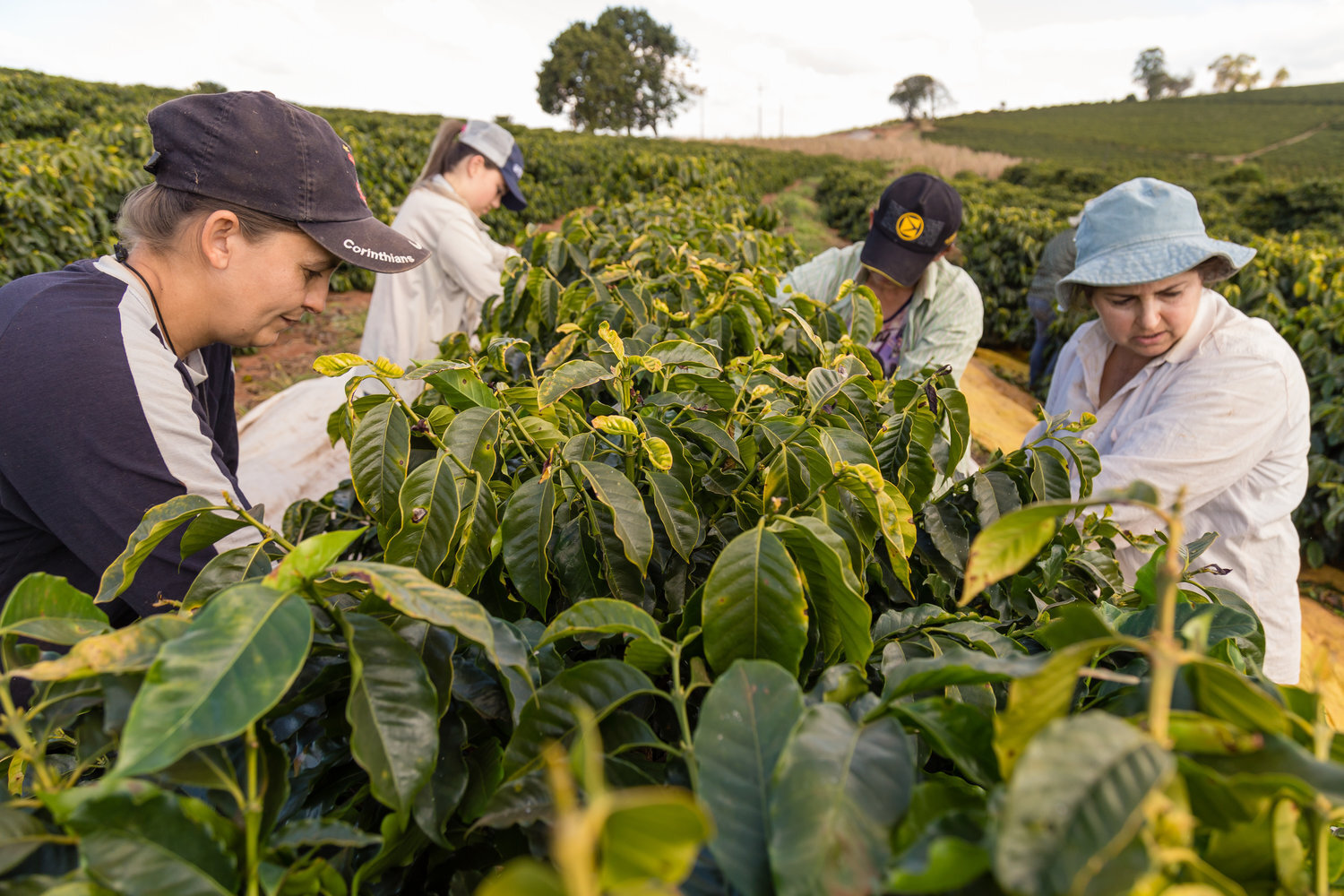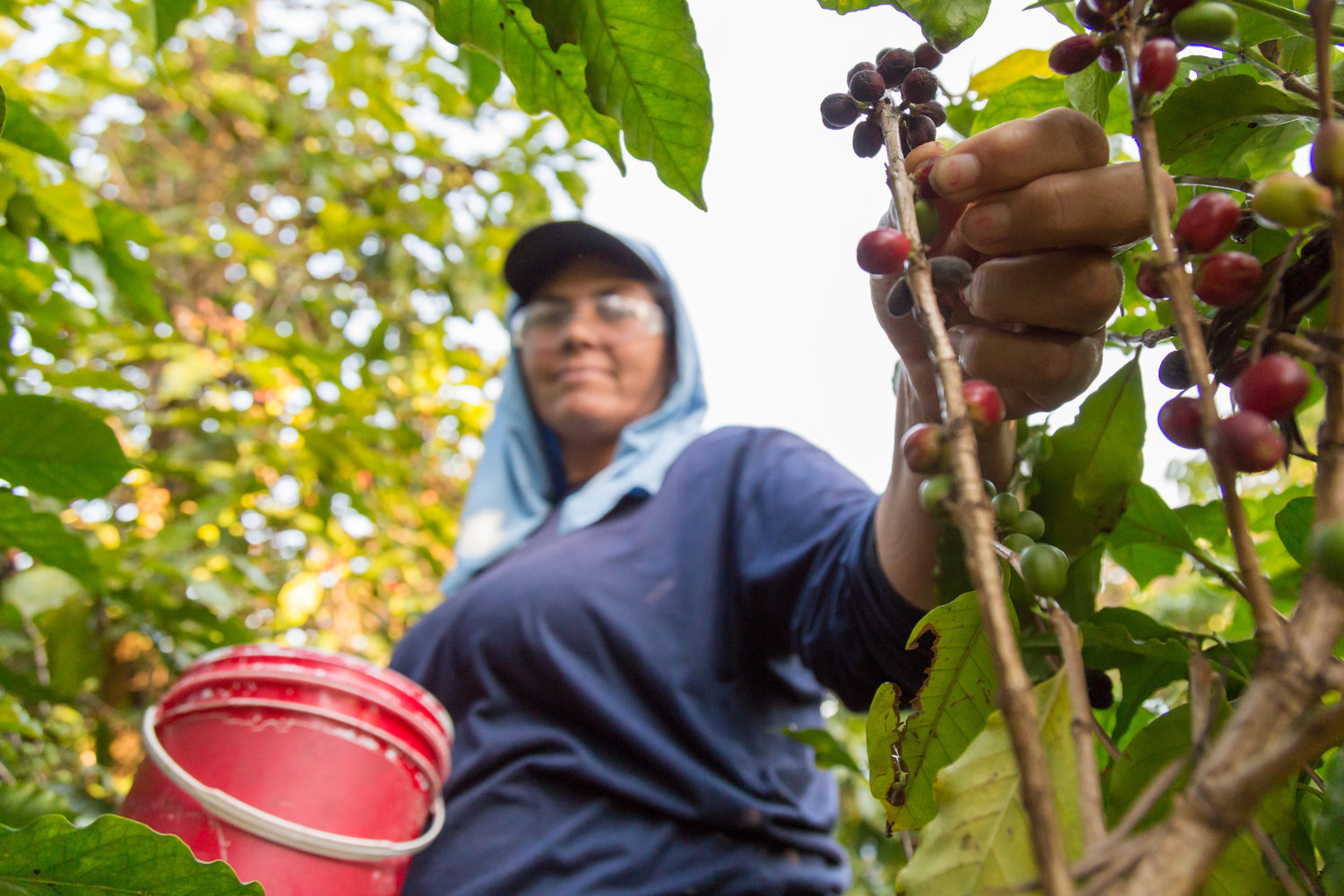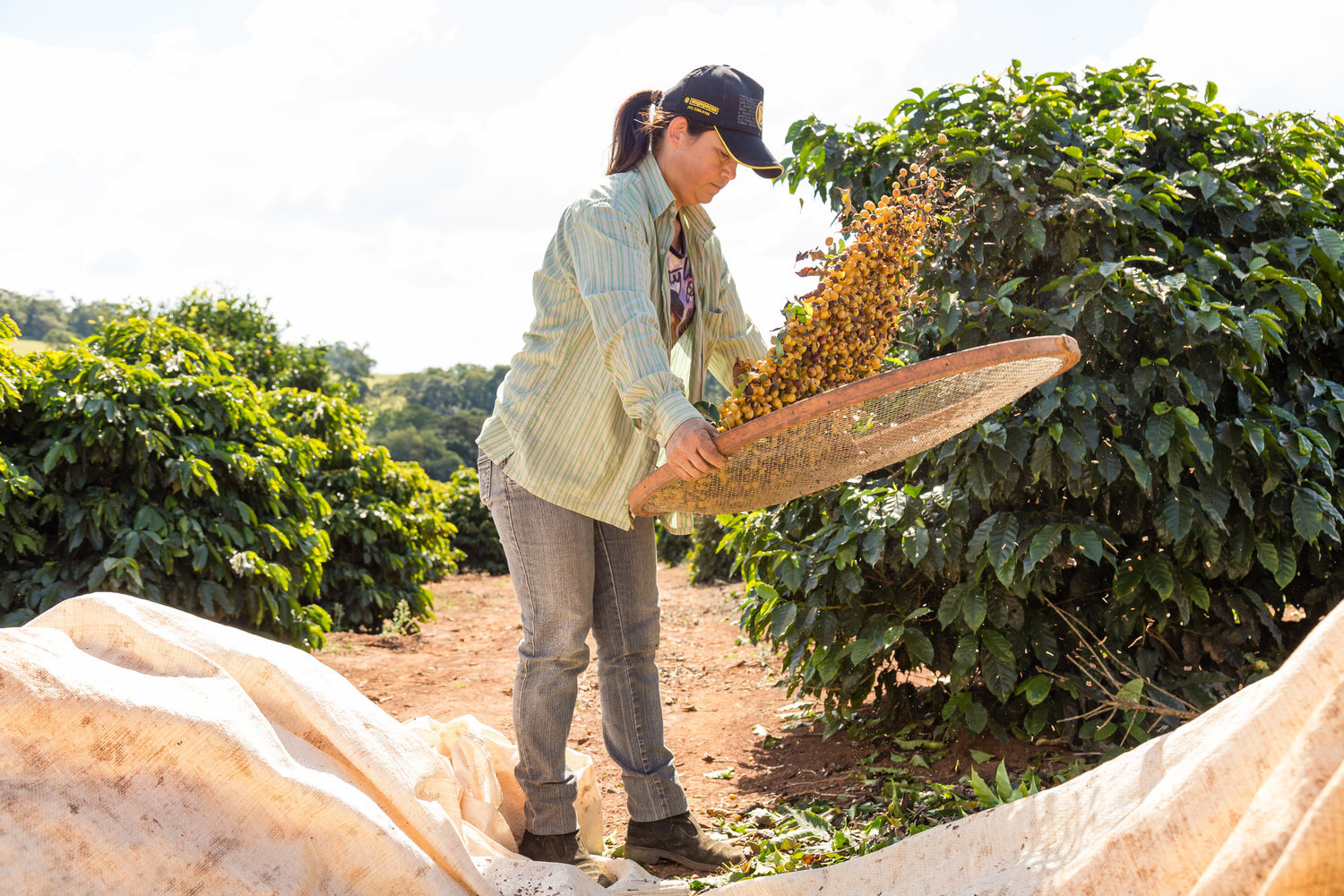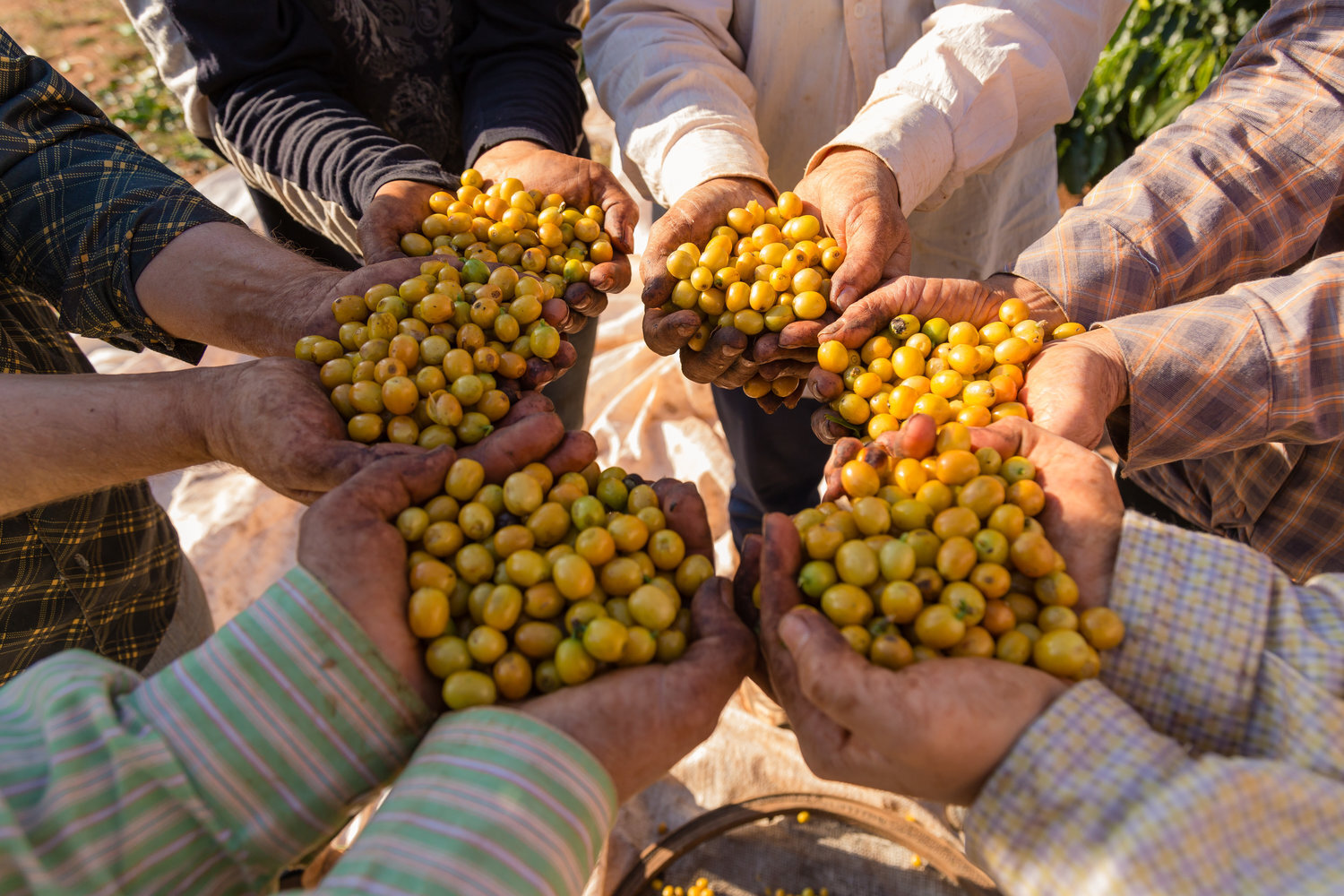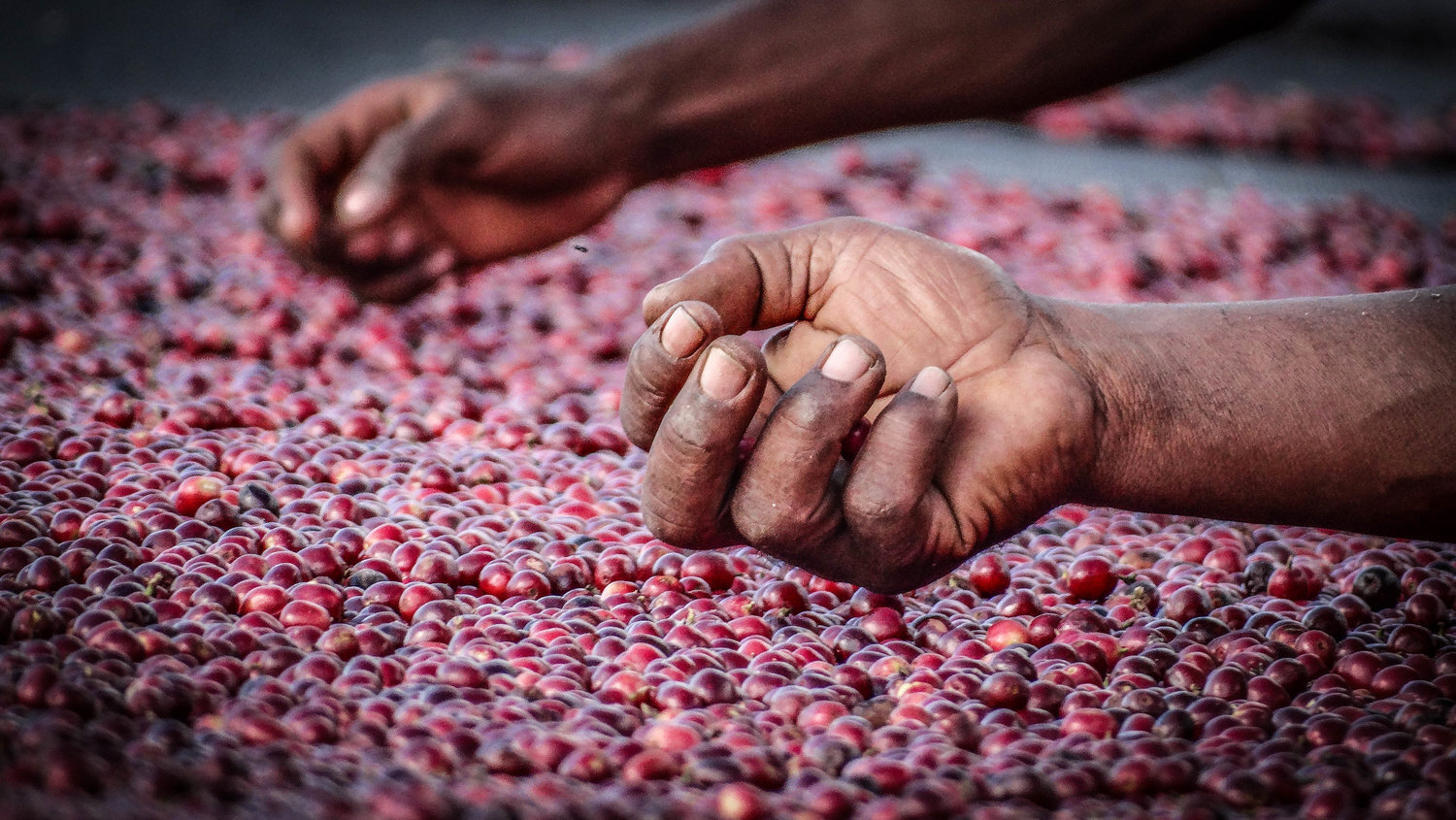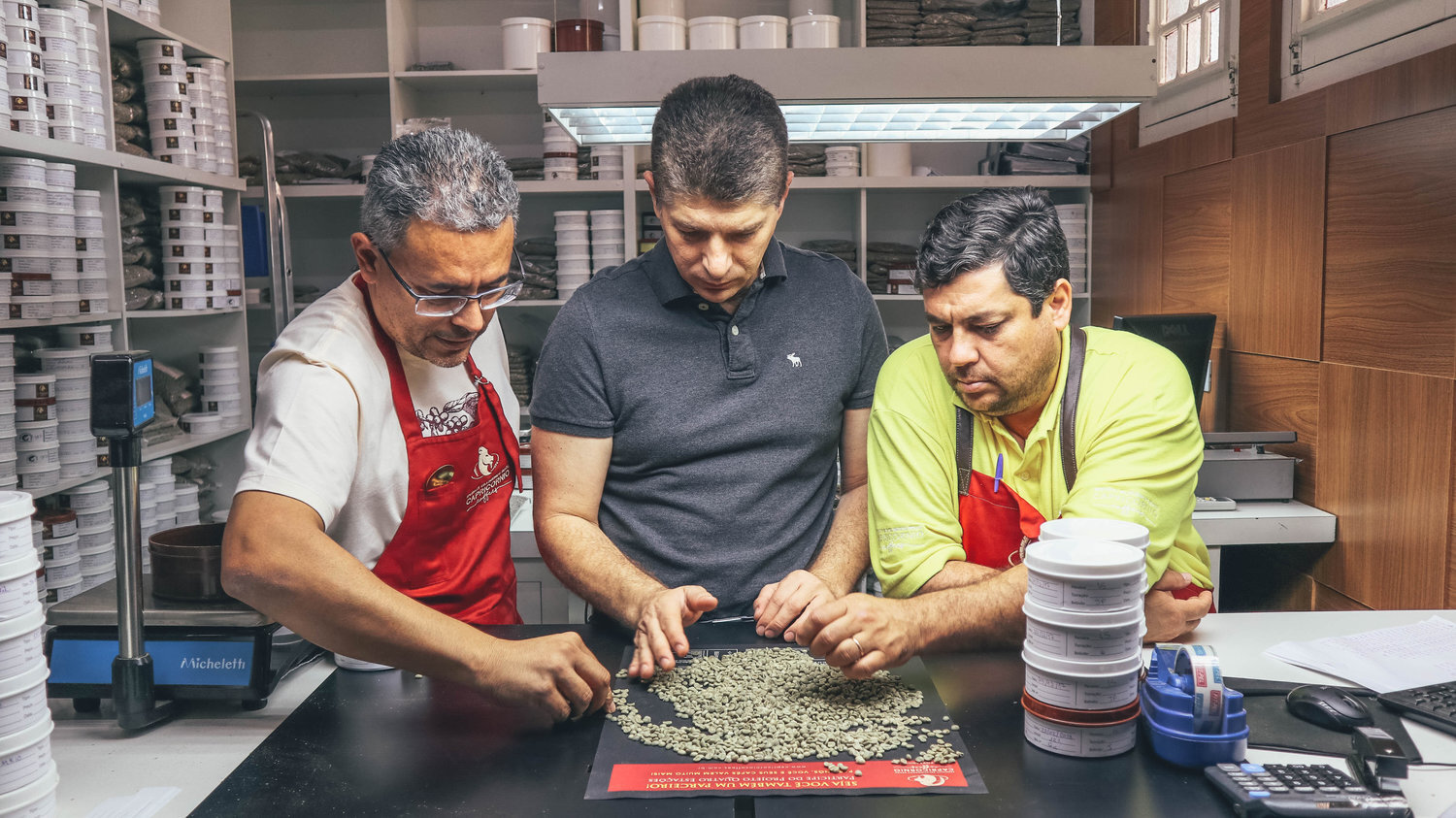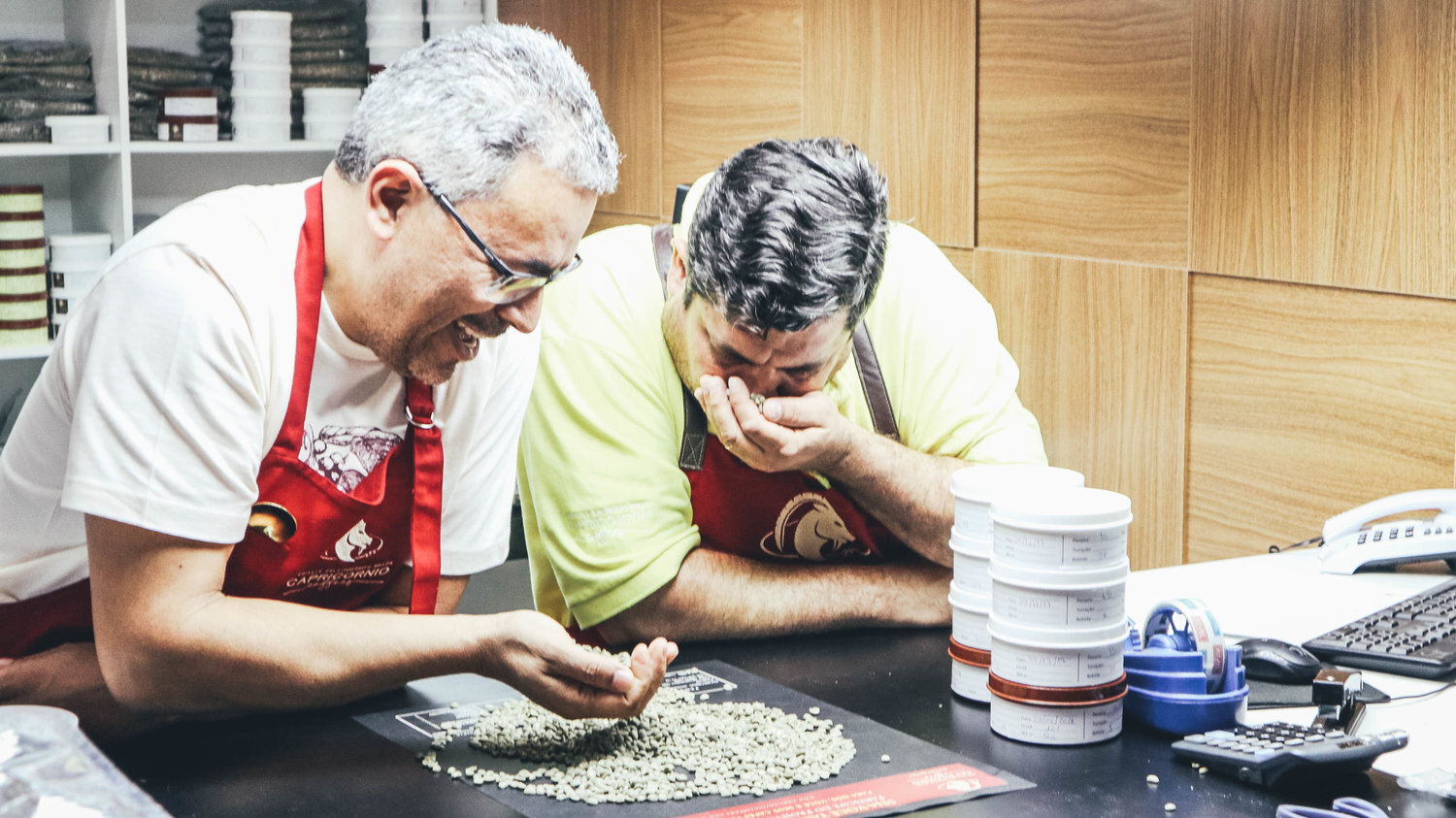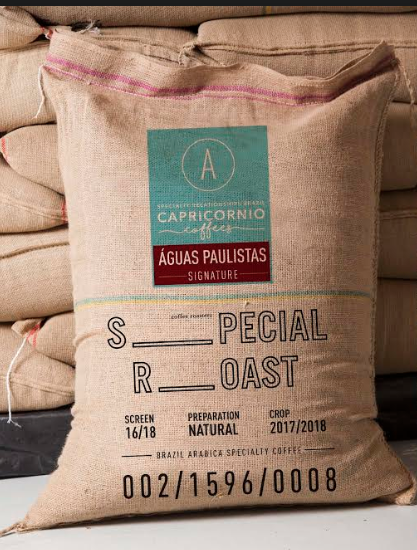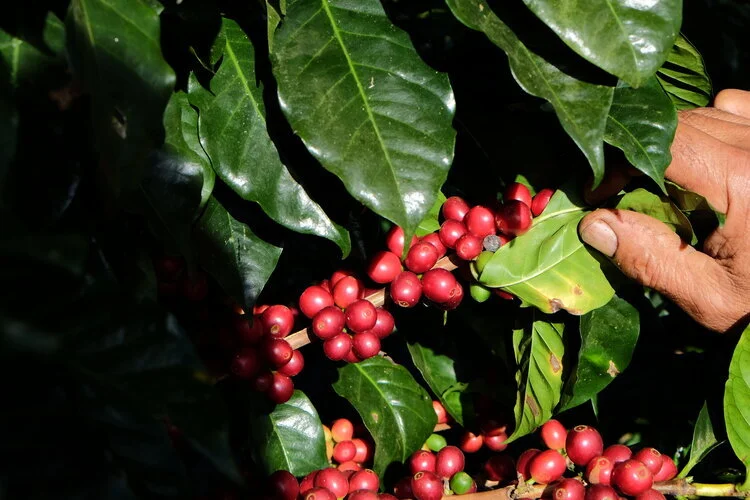personal coffee passport
Your coffee: a mix of Brazil and Nicaragua
Brazil
FARMS: Fazenda Santa Mariana, Sitio Teixeira, Fazenda São Carlos
BLEND: Farmer blend with notes of chocolate and berries
LOCATION: Marilia and Garça, Norte Pioneiro
CULTIVARS: Catuaí
EXPORTER: Capricornio Coffees
IMPORTER: This Side Up Coffees
ROASTER: Special Roast
Nicaragua
FARMERS: Paguaga family
LOCATION: Ocotal, Nicaragua
CULTIVARS: Caturra, yellow and red caturra, villassarchi
FARM SIZE: 5 estates, 140 hectares in total
ALTITUDE: 600 - 1,700 meters above sea level
EXPORTER: Café Vidita
IMPORTER: This Side Up Coffees
ROASTER: Special Roast
About the farms
Capricornio coffees is located on the line of Capricorn (hence the name!) and therefore quite distant from the Equator, this means that winters are colder and average temperature is lower. The coffees will need to work harder to ripen, which increases the sweetness of the flavor, creating a very distinct coffee. This coffee is a blend especially prepared for Special Roast, and part of the Signature coffees line of the connected Capricornio Estates. Signature coffees have taste profiles idealized and chosen by Capricornio Coffees directors José Antônio and Luiz Roberto, and validated by the Quality Control team. The aim is to create taste profiles that are repeated every year, offering not only quality, but also consistency, that coffee drinkers recognize every year.
ABOUT THE FARMER
Los Congos, Las Brumas, La Iguana, La Española, and La Portuguesa are all located in Nueva Segovia, a well know coffee region surrounded by communities that have long benefited from coffee. The Paguaga family runs five coffee estates in this region and even managed to protect the mountaintops of their properties, proclaiming them a natural reserve. Rina and René aim to make their estates a model for other farmers in the region to follow, and they do so with a systematic approach. Soil is carefully analysed, and rigorous nutrition plans for the trees are executed throughout the year. They truly work for healthy, happy estates.
bacchi sterker blend - coffee specs
what to taste for
Aroma: dark chocolate, dried berries.
Body: round mouthfeel, hazelnut, chocolate.
Acidity: gentle and rounded.
Aftertaste: black currant, bakers chocolate.
PROCESSING your coffee
The Brazilian coffee is a pulped natural, harvested with state-of-the-art machines. The combination of altitude and processing results in a jammy, red fruit profile, with lots of sweetness and a dark chocolate backbone. The excellent treatment of the Signature lots give it unrivaled consistency in quality and flavor, year after year. Educated graders cup the coffees, and select the right beans to make the best tasting and uniform farmer blend.
For the Nicaraguan coffee, it is handpicked, measured, and de-pulped without water. Shortly after, it ferments in the tanks for 15 to 36 hours. It is then washed and transported to Santa Lucila Drymill, where it is processed until it reaches 11 degrees in humidity. Coffee is packed in 69 Kg. Knaff bags.
ROASTING YOUR COFFEE
Special Roast uses a 22kg Probat UG22 roaster, that has been built in 1965. The roast time is 10 minutes. After the first crack, the coffee is roasted for a remainder of 25% of the time.
green coffee PRICE BREAKDOWN
59%
the price the farmers receive, of the green (unroasted) coffee.
18%
dry-milling costs and export fee.
3%
total shipping costs from Santos, through customs and to our warehouse and from Ocotal, Nicaragua to Amsterdam, the Netherlands. Full container loads good forwarding connections warrant such favourable shipping prices.
20%
Importing, financing, shipping bureaucracy, sampling and financing costs for This Side Up Coffees.
Background of this coffee in the Netherlands
Brazil
Honestly, Brazil had never been on our minds as a potential origin for coffee importer This Side Up. We didn't think our mission of helping smallholders market their coffees would fit in such an established coffee industry. That was until Luiz Saldanha and his partners captured our imagination. They established Capricornio to breathe new life in five regions in the southern states of Paraná and São Paolo, which until the 1960s, were one of the country's most vibrant coffee producing regions. Due to terrible frosts and the rise of the major coffee regions up north, its production stagnated, leading many coffee farmers to move north, leaving their farms underdeveloped. Now, due to climate change, these regions have become attractive to farmers again, but hardly anyone saw specialty potential.
That is until Capricornio found 20 passionate farmers and started the Four Seasons project: they helped them turn their farms into modern, ecologically sustainable farms and process their coffees to the highest standards. Now, they have started to show what these coffee regions have to offer the specialty coffee world. Because of its uniquely low latitude (around the tropic of Capricorn at 23ºS), coffee here endures more stress while developing. This leads to large, slowly ripened cherries with surprisingly complex cup profiles, similar to what happens at higher altitudes. We were impressed not only by the coffee's cup quality, but by the company's achievements in processing and creating coffees in close cooperation with specialty roasters and experts (such as Aida Battle) worldwide.
This connection to the roaster's world meant there was an immediate click with This Side Up, and since 2017, we've been proud to promote Capricornio in the European market. For the second season, we're co-creating a diverse range of coffees together with roasters from around Europe: from signature blends to exclusive processing experiments and microlots.
Nicaragua
Some of This Side Ups older clients might remember our Nicaraguan single family lots, traceable farm lots that we offered from 2015 to 2018. Sadly, because grave mismanagement of our then export ally, we had to pull out and leave this country which we hold so dear - but it was when Arjan van der Hoek from Bean Brothers introduced us to Rina and René Paguaga that we regained hope. We were immediately drawn to their transparency, care for quality - but most of all, their integrity.
Vidita means "little life" in Spanish and is inspired by how 97 year old founder René senior used to call Rina's and René's mother, Carolina. Their third generation business used to sell all their production to “Big Coffee”, but when Rina got to experience firsthand what actually happened to their carefully harvested and well-nourished coffee, she was shocked: "they were really not paying attention to details. I said to myself: this coffee doesn't represent my country, and we decided to do something about it." Although their estate is more than 60 years old, it was not until 2007 that they became fully independent. Once they broke free, the results became palpable almost immediately when the coffee processed at their mill won several international recognitions and began selling as specialty coffee. "Nicaraguan coffee can be the best in the world," says Rina, "and we really want to offer the best of what this country has to offer, and we believe we're on the right path".
Today, Santa Lucila dry mill and their brand Café Vidita is the heart of the operations of their family's five estates and a gathering center for producers in the region. Besides providing good prices and fair wages for a region where it’s very difficult to make a living, the Paguaga family manages healthy ecosystems and a deeply studied production system. In light of the country’s history, it would have been much easier in their shoes to turn away from coffee production as many others did. Their commitment to it, even in the most extreme circumstances, is admirable to say the least. A partner like this makes us excited about reestablishing This Side Up in our beloved Nicaragua - here’s to new a beginning!




